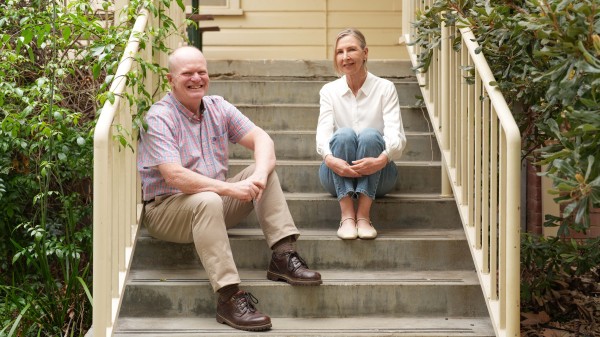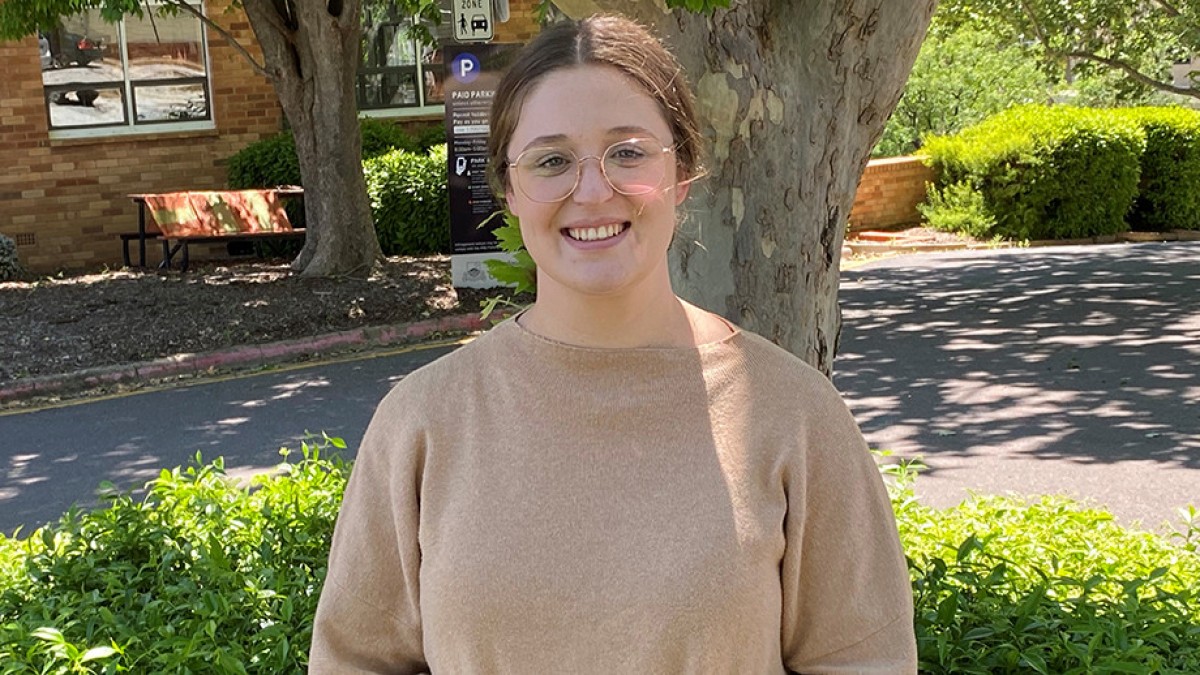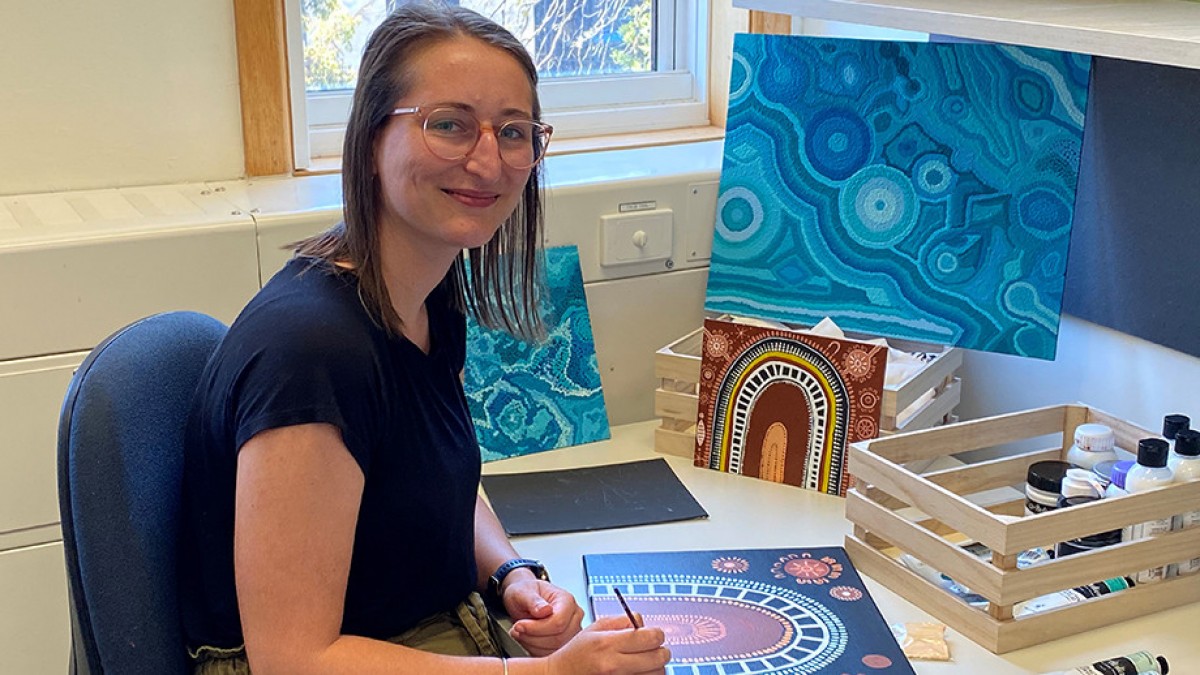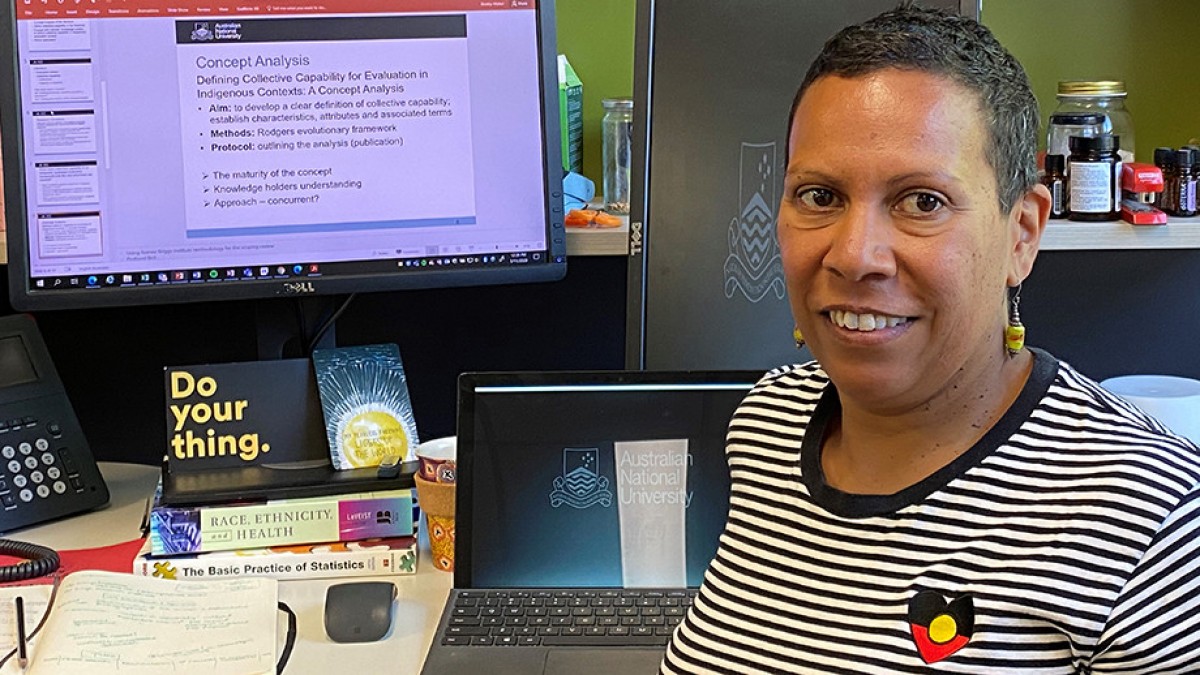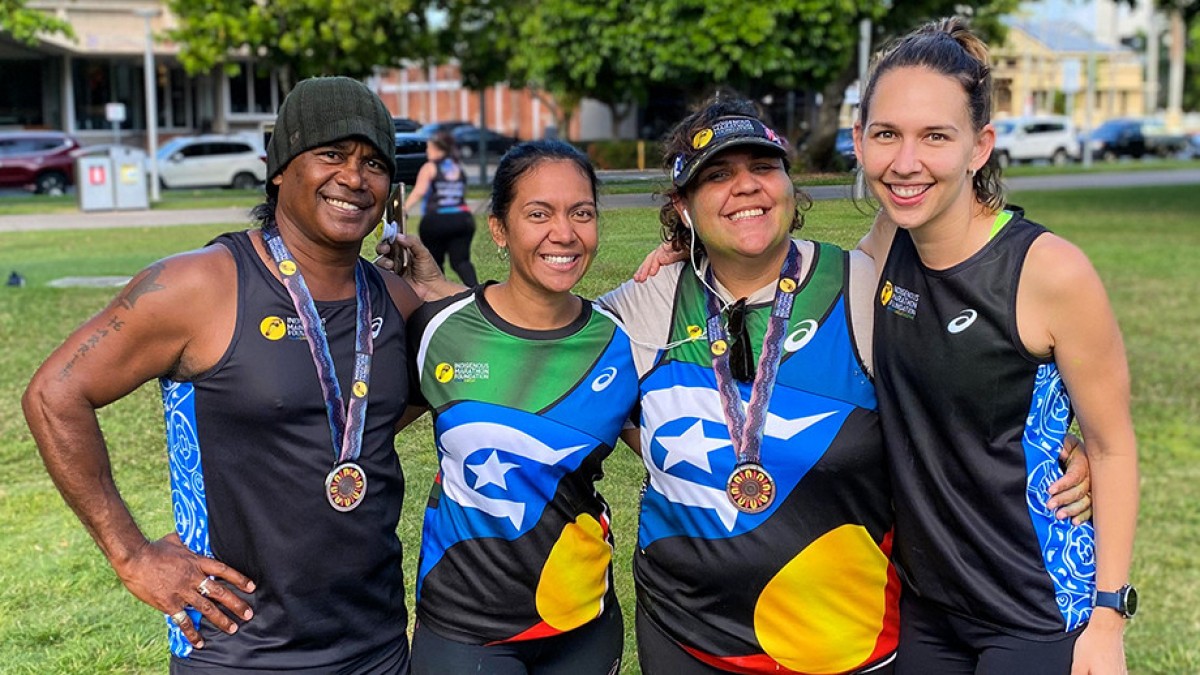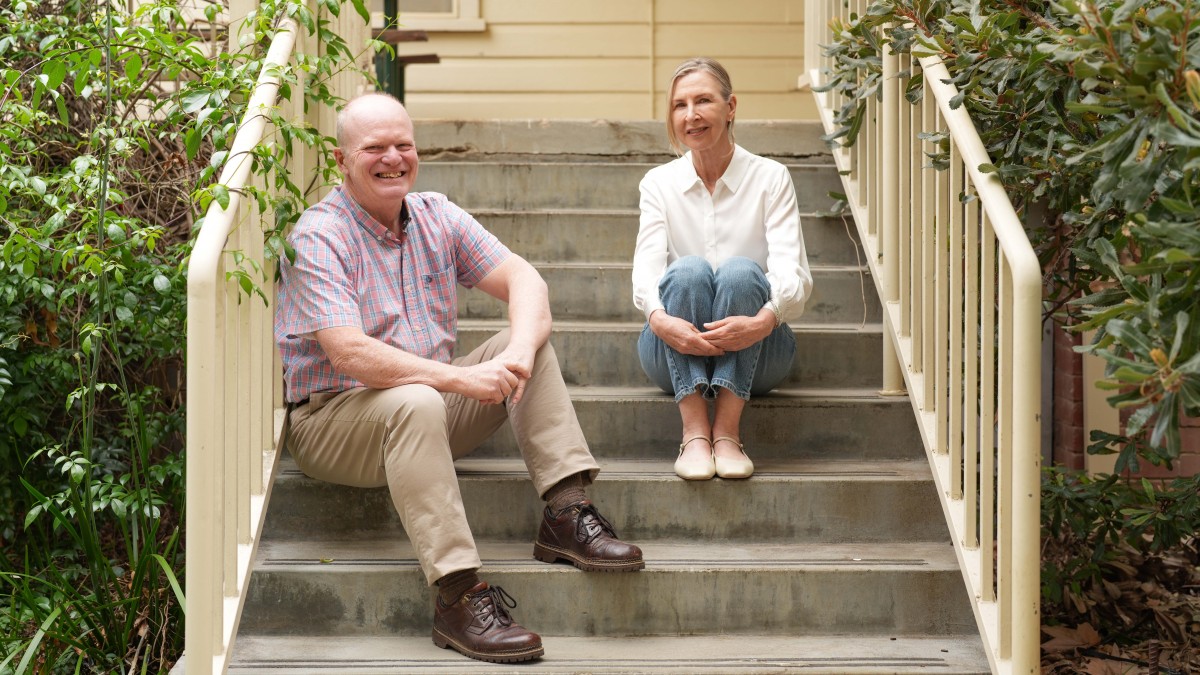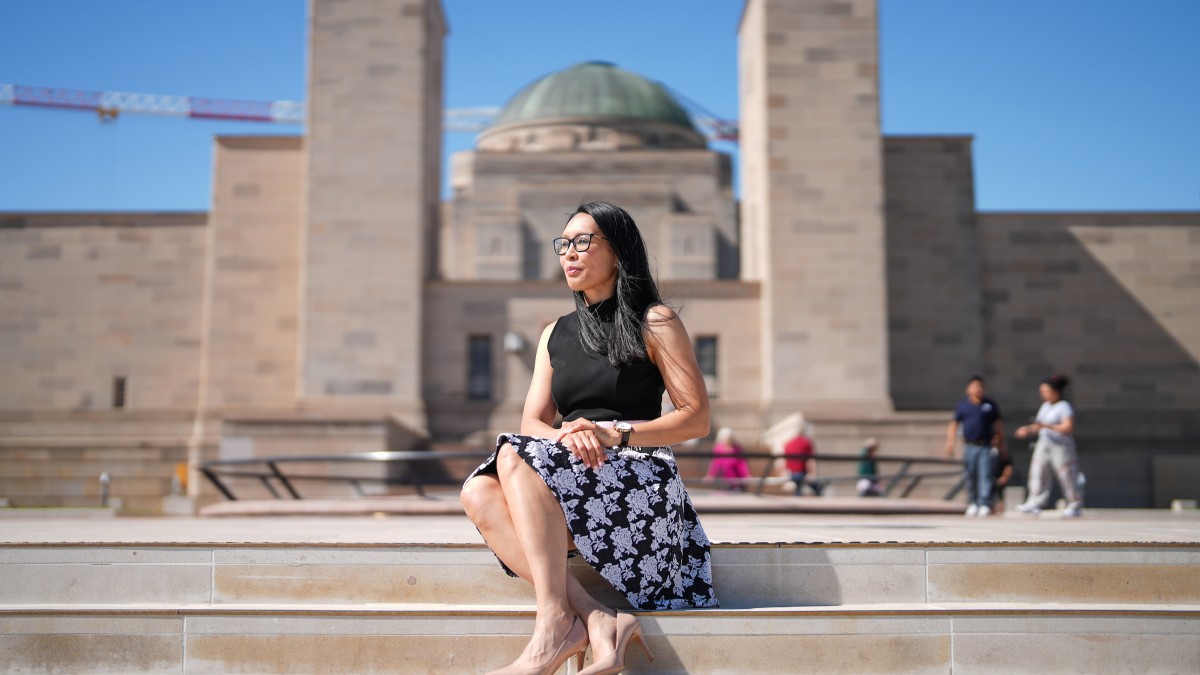Associate Professor Ray Lovett is proving the positive power of culture with data
We have a mistaken perception in Australia that being Aboriginal or Torres Strait Islander causes poor health.
It's a perception that Wongaibon (Ngiyampaa) man and ANU epidemiologist Associate Professor Ray Lovett is determined to debunk, using data science to instead celebrate the positive power of culture.
Mayi Kuwayu is Lovett's study of an unseen scale - the largest ever health and wellbeing analysis of Aboriginal and Torres Strait Islander adults in Australia.
With 10,000 participants to date, the Study is the first of its kind to capture cultural data on what makes Aboriginal and Torres Strait Islander peoples strong.
The first findings verify what Lovett set out to prove - that Aboriginal and Torres Strait Islander peoples' identity, cultural participation and knowledge are linked to better health outcomes.
"For many Aboriginal and Torres Strait Islander people this concept is intuitive. We know if we maintain a connection to our Country, to our languages, to strong family and kinship networks that it is good for us, but we needed the data," Associate Professor Lovett says.
"With the first Mayi Kuwayu findings, we now have the data to understand it."
This NAIDOC Week, we reflect on and celebrate the theme Always Was, Always Will Be. We recognise that First Nations people have been here for millennia, care for this continent and are spiritually connected to this country.
The significance of connection to Country has been confirmed by the Mayi Kuwayu Study, with half (50 per cent) of all participants spending some time on their mob's Country. More than one-third (36 per cent) reported having cultural responsibilities for their Country, such as looking after the land or their Elders.
Wiradjuri woman and study research assistant Makayla-May Brinckley not only lives on but is sustained by Ngunnawal/Ngambri Country in the Canberra region.
“When I connect to Ngunnawal/Ngambri Country the old spirits heal me and guide me as a visitor on their land,” she says.
“Physically and spiritually connecting to Country for me is important because Country sustains who we are – and just as Country cares for us, we have a responsibility to care for her.”
In Ngiyampaa language, ‘Mayi Kuwayu’ means to follow Aboriginal people over time. Ngiyampaa is the language of the dry, riverless country of western New South Wales.
The stories shared through the Study show that over one third (36 per cent) of all participants speak some Aboriginal or Torres Strait Islander words or languages, with the desire to keep languages strong across families and communities.
Honouring cultural knowledge and participating in traditions like art remains meaningful, with almost half (45 per cent) of participants dedicating time to art activities.
“Art keeps me grounded and connected to culture,” says Roxy Jones, Palawa woman and ANU PhD candidate and research associate.
Totemic systems also retain their significance, with 36 per cent of participants knowing their totem or Dreaming.
“Honouring our knowledge - past and present - and privileging the voices of our knowledge holders is important,” says Yamatji woman Bobby Maher, ANU PhD candidate and research associate.
“Knowledge continues to evolve and be our strength. I feel it is a connector to our sense of belonging, land, country and our mob.”
As well as maintaining strong culture, strong bodies are also a priority and exercise can help keep people connected. More than half (51 per cent) of Mayi Kuwayu participants reported exercising five to seven days a week.
Kulkalgal and Kaanju woman Nadine Hunt is a community researcher for the study and feels “so blessed” to be able to move her body and stay healthy with the support of family.
“As well as improving our health and wellbeing, running together keeps us connected and strong. For me, a huge part of culture is family.”
The overarching finding from this study created by and for Aboriginal and Torres Strait Islander people is overwhelmingly positive – 87 per cent of participants are satisfied with their lives.
Associate Professor Lovett’s hope is that this pioneering study will inform the creation of better policies and programs to support Aboriginal and Torres Strait Islander wellbeing by supporting strong culture.
"My hope is that we see a day where Aboriginal and Torres Strait Islander health and wellbeing policy focuses on connecting and reconnecting people to their country, or to cultural knowledge, because of the wellbeing benefits that would bring," he says.
Learn more about Mayi Kuwayu and participate: https://mkstudy.com.au/






